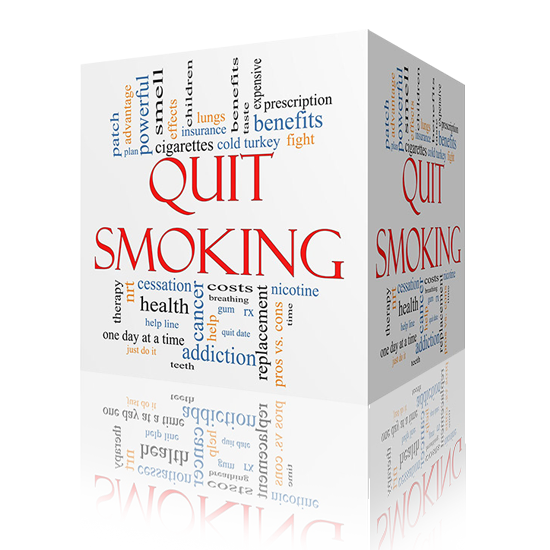


Quitting smoking can be a real challenge. But it's one of the best things you can do for your health. Smoking is a dangerous, even deadly habit. It's a leading cause of cancer. It also increases your risk for heart attacks, strokes, lung disease, and other health problems, including bone fractures and cataracts.
If nicotine lozenges, patches, chewing gum, counseling, and other smoking cessation methods haven't helped you kick the habit, don't give up.
Ask your doctor if hypnosis is an option for you. Some studies have shown that hypnosis may help certain people quit smoking. contact Strathclyde Hypnosis for further information

What Happens When You Quit
Some of these will be relevant to you - please take some time to think about the effect change you will go through and when you are ready to quit, Steve is on hand and ready to help
- Immediately after quitting smoking, heart rate and blood pressure, which is abnormally high while smoking, begin to return to normal.
- Within a few hours, the level of carbon monoxide, which reduces the blood’s ability to carry oxygen, begins to decline.
- Within a few weeks, circulation improves, you don’t produce as much phlegm, and you don’t cough or wheeze as often.
- The workload on the heart is decreased and cardiac function is improved.
- Food tastes better, and your sense of smell returns to normal.
- Everyday activities no longer leave you out of breath.
- Within several months of quitting, you experience significant improvements in lung function.
- In one year, your risk of heart disease, heart attack, and stroke is halved.
- In five years, many kinds of cancer, including lung, larynx, mouth, stomach, cervix, bladder, show decline in risk, and that decline approaches the risk of someone who has never smoked.
- Within 10 to 15 years, risk of lung disease, including bronchitis and emphysema, are decreased.
Conditions such as cataracts, macular degeneration, thyroid conditions, hearing loss, dementia, and osteoporosis are positively affected. - Nerve endings in the mouth and nose begin to regenerate, improving taste and smell.
- Medications may work better, enabling some to be taken in decreased doses.
- If you’re taking birth control pills, quitting smoking will decrease your chance of heart attack and stroke due to clotting.
- You’ll have decreased risk for impotence and infertility.
- If you’re pregnant, you’ll protect your unborn child from Sudden Infant Death Syndrome (SIDS) and low birth weight.
- Years will be added to your life: people who quit smoking, regardless of their age, are less likely than those who continue to smoke to die from smoking-related illness.
Addiction
Most smokers become addicted to nicotine, a drug that is found naturally in tobacco.2
More people in the United States are addicted to nicotine than to any other drug.3 Research suggests that nicotine may be as addictive as heroin, cocaine, or alcohol.1,2,4
Quitting smoking is hard and may require several attempts.4,5 People who stop smoking often start again because of withdrawal symptoms, stress, and weight gain.4,5,6
- Nicotine withdrawal symptoms may include:4,6
Feeling irritable, angry, or anxious
Having trouble thinking
Craving tobacco products
Feeling hungrier than usual
Benefits of Quitting
Stopping smoking is associated with the following health benefits:
- Lowered risk for lung cancer and many other types of cancer.
- Reduced risk for heart disease, stroke, and peripheral vascular disease (narrowing of the blood vessels outside your heart).
- Reduced heart disease risk within 1 to 2 years of quitting.
- Reduced respiratory symptoms, such as coughing, wheezing, and shortness of breath. While these symptoms may not disappear, they do not continue to progress at the same rate among people who quit compared with those who continue to smoke.
- Reduced risk of developing some lung diseases (such as chronic obstructive pulmonary disease, also known as COPD, one of the leading causes of death in the United States).
- Reduced risk for infertility in women of childbearing age. Women who stop smoking during pregnancy also reduce their risk of having a low birth weight baby.

